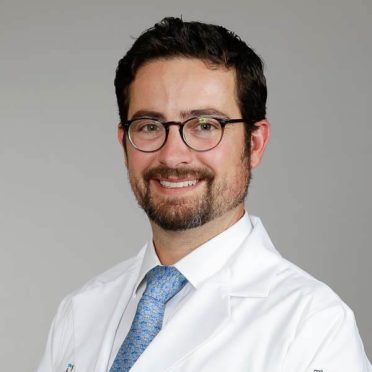“Today” show meteorologist Al Roker called his recent prostate cancer diagnosis “good-news, bad-news kind of thing.”
While the bad news was being diagnosed with an aggressive form of the disease, he told viewers of the weekday morning show that the good news was it was detected early. For years, urologists like Dr. Ryan Dorin of the Hartford HealthCare Tallwood Urology & Kidney Institute have preached the value of regular screening because it can uncover the disease when it is most easily and effectively treated.
The prostate specific antigen (PSA) blood test is a recommended screening for all men between ages 55 and 70. Roker credited the test with discovering elevated PSA levels, a mark of the disease.
“Prostate cancer is the most common non-skin cancer diagnosed in American men today,” Dr. Dorin noted, adding that 1 in 6 American men will be diagnosed with prostate cancer in their lifetime. In Black males like Roker, the rate is two-thirds higher.
To treat prostate cancer patients efficiently, teams from Tallwood and Hartford HealthCare’s Cancer Institute created a prostate cancer service in which men can be seen by a urologist like Dr. Dorin, as well as specialists in radiation and medical oncology either in a virtual appointment from the comfort of their home or in a hybrid visit. For the latter, they are seen face-to-face by the urologist who then, with the patient, connects virtually with the other specialists.
During November’s National Prostate Health Month and National Men’s Health Month, Dr. Dorin said it’s a perfect time to underscore that prostate is also one of the most easily treated forms of the disease when caught early enough.
“Fortunately, prostate cancer is characterized by a long period of survival after treatment, largely related to early detection of the disease while it is still localized and effectively treated with surgery and/or radiation therapy,” he said. “Many patients are, therefore, cured of the cancer and live long lives thereafter.”
Treatment for localized prostate cancer, or that which is contained to the prostate gland itself, is generally active surveillance in which regular urology checkups monitor the disease, surgery or radiation. Roker will have his prostate removed because of the aggressive nature of his cancer.
For more advanced forms of the disease, Dr. Dorin said hormone deprivation therapy and chemotherapy are considered.
“The treatment options for prostate cancer vary widely depending upon what stage the disease is in at the time of diagnosis,” he said, “which gets back to PSA testing and screening with the hope of diagnosing the disease sooner when more treatment options are available and likely to be successful.”
To treat prostate cancer patients efficiently, teams from Tallwood and Hartford HealthCare’s Cancer Institute created a prostate cancer service in which men can be seen by a urologist like Dr. Dorin, as well as specialists in radiation and medical oncology either in a virtual appointment from the comfort of their home or in a hybrid visit. For the latter, they are seen face-to-face by the urologist who then, with the patient, connects virtually with the other specialists.
For more information on Hartford HealthCare’s multidisciplinary clinic, call the nurse navigator at 860.972.5768 or click here.



